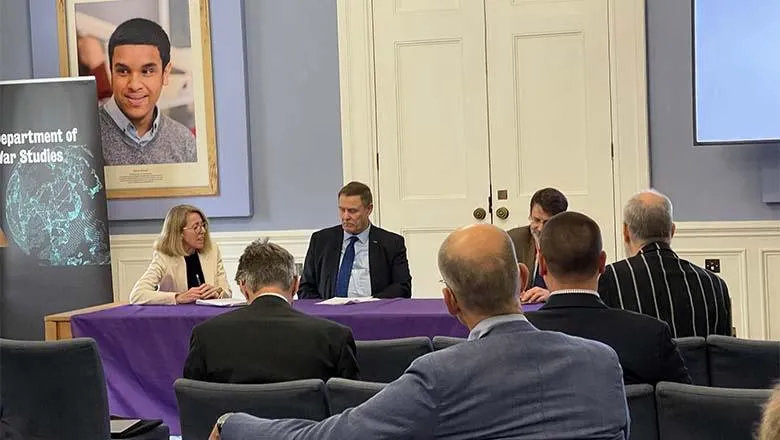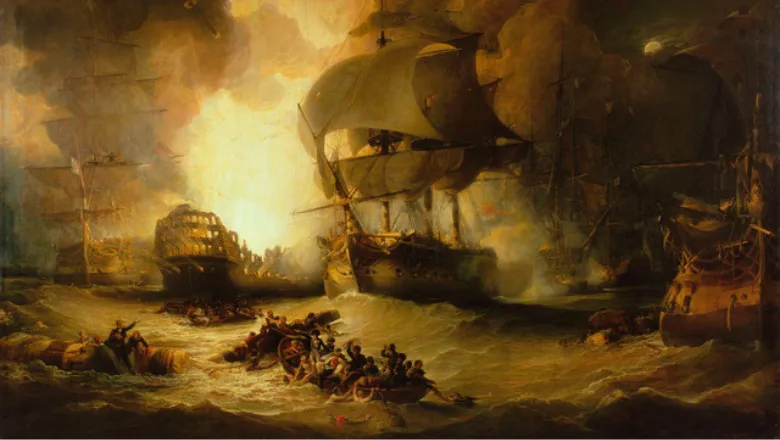
Dr Rachel Blackman-Rogers
Lecturer in Defence Studies
Biography
Rachel is an historian of maritime power, specialising in the French Revolutionary Wars. She was awarded her PhD in naval history from King’s College London in 2023 and has since been working as a lecturer in the Defence Studies Department at KCL.
Rachel has sat on the editorial board for the Research in Maritime History Series at Liverpool University Press since 2023 and is a member of both the Society for Nautical Research and the Naval Records Society. She is also a regular contributor and presenter on the Napoleonic Quarterly podcast since 2020, including a spinoff series, Lessons from History, that applies history to contemporary security issues.
https://podcasts.apple.com/gb/podcast/the-napoleonic-quarterly/
Research Interests
- Contemporary and historical naval power and strategy
- French Revolutionary and Napoleonic Wars
- The Arctic
- Maritime Identity
Publications
Murphy, Hugh and Blackman-Rogers, Rachel (2022) “Greenfield shipyards and modernisation in the British Shipbuilding industry and elsewhere, 1900-1977,” The Mariner’s Mirror, Vol. 108, 2, Article ID: RMIR 2009246, DOI: 10.1080/00253359.2022.2009246
Teaching
Defence Studies at the UK Defence Academy
PURE Profile:
https://kclpure.kcl.ac.uk/portal/en/persons/rachel-blackman-rogers
Research Centres and Groups:
- Laughton Unit
- The Corbett Centre
Research

Corbett Seapower Centre
The Corbett Centre develops and promotes the understanding and analysis of maritime policy and strategy

Laughton Naval History and Maritime Strategy Unit
A Home for British naval and maritime thinking, research into global naval history and the study of seapower and maritime strateg. The Laughton Unit provides the ideal basis for original and challenging research on all aspects of naval history, seapower, sea power studies and maritime strategy, preparing the next generation of thinkers from all around the world, ready and able, for a spectrum of career possibilities and destinations.
News
Security Studies hosts international conference on maritime strategist Sir Julian Corbett
The Corbett 100 Conference explored the life and times of the important historian and strategist

Events

DSD Research Seminar Series: How the Navy Saved Britain, 1793-1798
Discover how Britain’s naval strategy secured its survival during the French Revolutionary Wars in this compelling seminar with Rachel Blackman-Rogers
Please note: this event has passed.
Research

Corbett Seapower Centre
The Corbett Centre develops and promotes the understanding and analysis of maritime policy and strategy

Laughton Naval History and Maritime Strategy Unit
A Home for British naval and maritime thinking, research into global naval history and the study of seapower and maritime strateg. The Laughton Unit provides the ideal basis for original and challenging research on all aspects of naval history, seapower, sea power studies and maritime strategy, preparing the next generation of thinkers from all around the world, ready and able, for a spectrum of career possibilities and destinations.
News
Security Studies hosts international conference on maritime strategist Sir Julian Corbett
The Corbett 100 Conference explored the life and times of the important historian and strategist

Events

DSD Research Seminar Series: How the Navy Saved Britain, 1793-1798
Discover how Britain’s naval strategy secured its survival during the French Revolutionary Wars in this compelling seminar with Rachel Blackman-Rogers
Please note: this event has passed.
